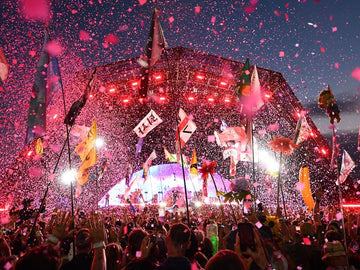Introduction
From juice cleanses to fitness trackers, wellness trends have taken over. But has this pursuit of "health" made us forget how to enjoy life? As wellness culture becomes more pervasive, an interesting question arises: has it come at the cost of spontaneity, indulgence, and, ultimately, fun?
What started as a movement to help people live better has, in some ways, turned into a rulebook of what not to do. In this blog, we’ll explore whether wellness culture has unintentionally cancelled fun and how we can find a healthier balance.
Wellness is Evolving, But Are We Losing Ourselves?
Wellness culture has roots in ancient practices like Ayurveda, yoga, and communal healing rituals. These traditions emphasized balance. Caring for your body, mind, and spirit in harmony with your environment. But fast-forward to today, and wellness has evolved into a $4.4 trillion industry, with apps, products, and programs promising everything from detoxification to eternal youth.
Sociologists like Anthony Giddens argue that in our modern (Giddens, 1991), stressful world, wellness offers people a sense of control. It’s no wonder it’s become so popular. Life is more chaotic than ever, and wellness feels like a safe harbour. But as it grew into a massive industry, wellness started to shift. Instead of being about balance, it became a checklist of perfection. Drink this, not that. Work out daily. Sleep exactly eight hours.
What was once empowering now often feels like pressure to meet impossible standards.
Wellness Culture & Guilt: Why We Feel Judged for Having Fun
Here’s the thing: you don’t have to go looking for wellness advice: it’s everywhere. Social media is packed with influencers showing off perfect morning routines and flawless plant-based meals (most of these influencers now swear by a raw meat diet, it’s ever-changing!). Headlines scream tips like, “Avoid These Five Foods If You Want to Live Longer!”
The problem? Wellness culture has turned personal choices into moral statements. Skipping a workout feels like failure, and indulging in a cocktail is labelled as "bad."
This kind of thinking, called moralization (Rozin, 1999), pushes people toward guilt rather than balance.
Societies create boundaries between what is considered pure and impure. In wellness culture, these boundaries are often drawn around food, alcohol, and lifestyle choices. A green smoothie is “pure”; a cocktail on a Friday night is “indulgent.”
This binary thinking can lead to a kind of moral superiority among adherents of wellness culture, creating pressure to conform. Such environments can foster shame and disconnection rather than belonging, as individuals feel judged for stepping outside the prescribed wellness narrative.
Why Joy and Social Connection Are Essential for Your Health
The truth is, fun isn’t just nice to have, it’s essential. Anthropologists have long studied how communal joy, festivals, celebrations, and shared meals, plays a critical role in human well-being.
Joy, laughter, and connection are crucial for building psychological resilience. Fun lowers stress hormones, boosts mood, and even improves immunity. In short, those nights out with friends aren’t just good for your social life, they’re good for your health, too.
How to Practice Wellness Without Missing Out on Life
Here’s a radical idea: wellness and fun don’t have to be opposites. True wellness isn’t about cutting out everything that makes life enjoyable, it’s about finding a balance that works for you.
That might mean having a glass of wine at dinner without guilt, or saying yes to dessert because it makes you happy.
Think of balance as the ultimate act of self-care. It’s not about following someone else’s rules, it’s about choosing what feels good for your body and mind.
Can You Drink, Party & Stay Healthy? The Answer Might Surprise You!
That’s why, at Blōma, we’re flipping the script. Wellness shouldn’t feel like a list of things you can’t do. It should feel like a way to live fully and still feel good the next day.
Wellness doesn’t mean giving up what makes you happy, it means finding ways to feel at your best, so you can keep enjoying all the moments that matter.
Looking Forward
So, has wellness culture cancelled fun? Its modern incarnation often risks becoming prescriptive and restrictive, sidelining the very joy it aims to promote.
Rather than letting wellness culture cancel fun, we can embrace a more balanced approach. It’s time we made space for joy, indulgence, and spontaneity within the wellness conversation.
Wellness should fit into real life, not take it over. Let’s make balance the new normal.
References:
1. Rozin, P. (1999). "The process of moralization." Psychological Science, Link.
2. Giddens, A. (1991). Modernity and Self-Identity. Stanford University Press.




